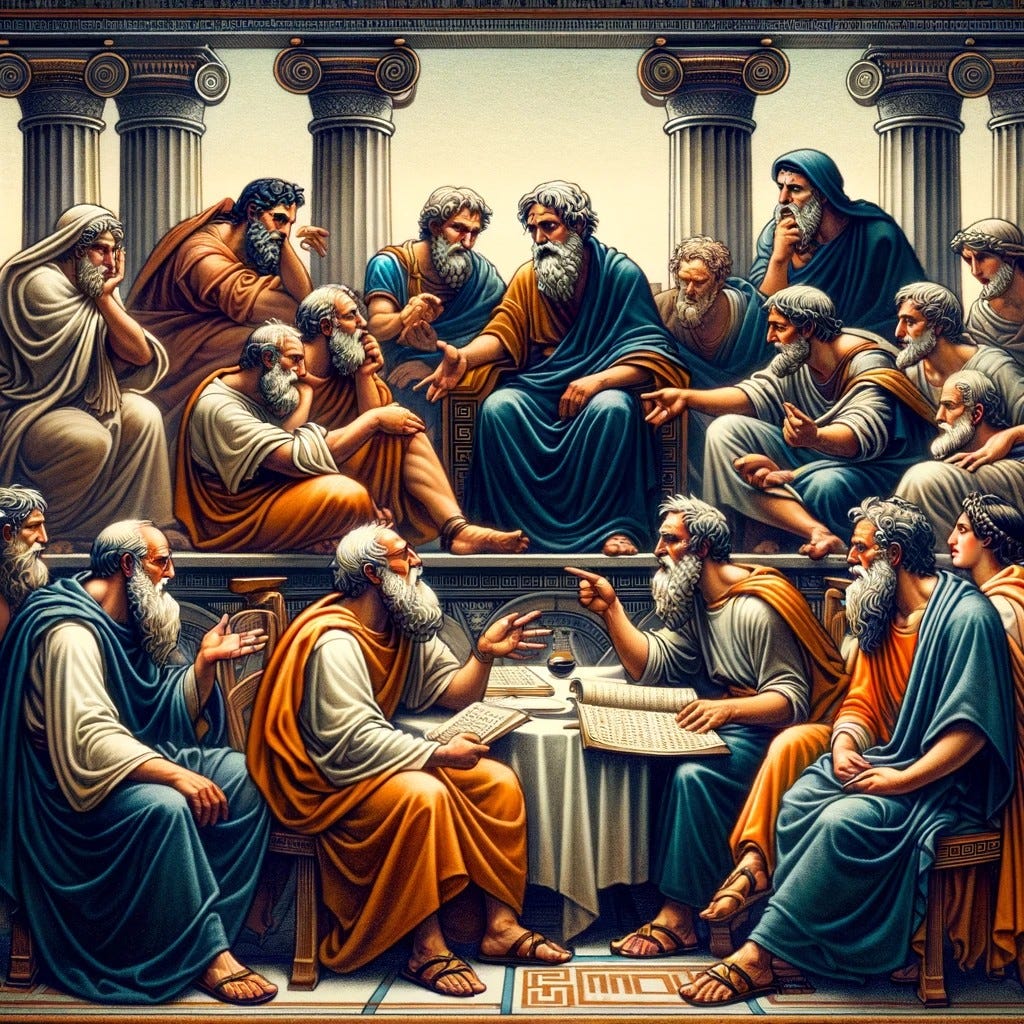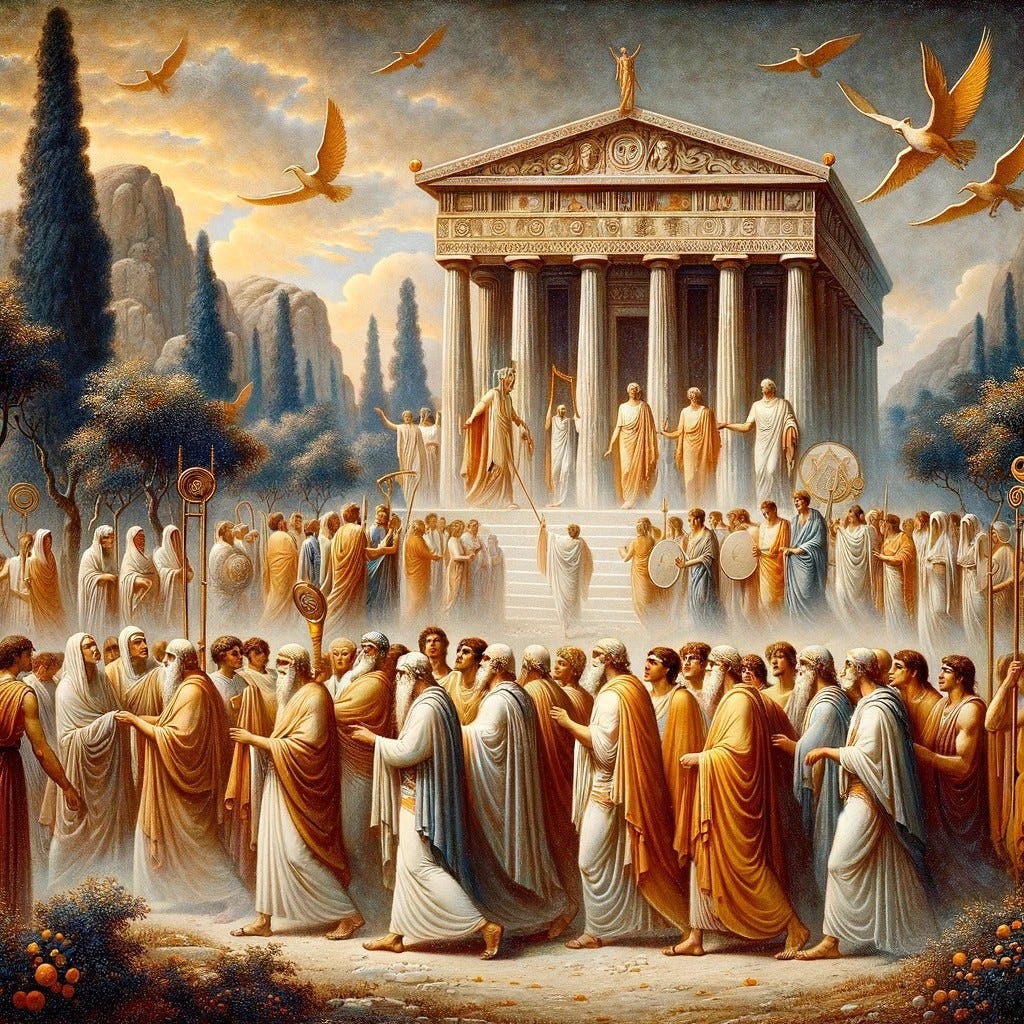Divine Brew
Secret Rites and Families of the Mediterranean
If you have been following my work, you know that I am writing a play about the trial of Alcibiades. He was tried in absentia for revealing the sacred secrets of the Eleusinian Mysteries in Greece. What follows is more of my findings in research…
Delving into the enigmatic world of ancient Greek religious practices, the Eleusinian Mysteries emerge as a focal point of fascination and reverence. At the core of these rituals was Kykeon, a beverage shrouded in secrecy, integral to the ceremonies dedicated to the goddesses Demeter and Persephone.
This exploration aims to uncover the mysteries surrounding Kykeon, the specialized roles of the Eumolpidae and Kerykes families in conducting the Eleusinian Mysteries, and the profound influence these rituals exerted on the cultural and religious fabric of ancient Greece. Through examining the historical, mythological, and ritualistic aspects, we seek to better comprehend the significance of these ancient practices and the hereditary guardianship of the families involved.
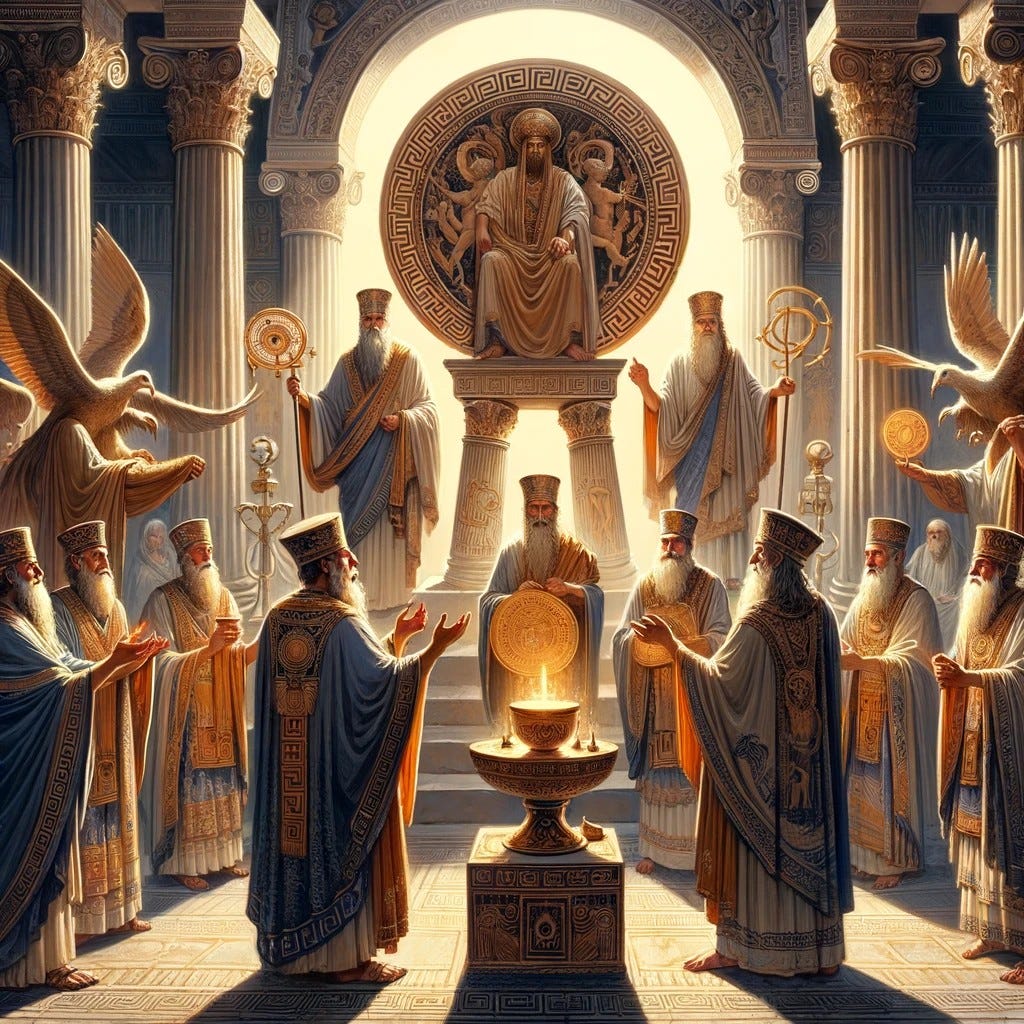
Kykeon in the Eleusinian Mysteries
Kykeon was a mixture of barley, water, and herbs. The exact recipe and preparation method were closely guarded secrets, known only to a select few. There is speculation among historians and ethnobotanists that kykeon may have contained psychoactive substances, possibly derived from ergot, a fungus that grows on barley. This has led to theories that the drink might have induced visions or altered states of consciousness during the Mysteries.
Kykeon was consumed by initiates during the Eleusinian Mysteries. It was a part of the ritual, symbolizing a form of spiritual nourishment and possibly facilitating mystical experiences.
Families Entrusted with Kykeon
Two priestly families, the Eumolpidae and the Kerykes, were traditionally in charge of conducting the Eleusinian Mysteries. It's likely that members of these families were involved in the preparation of kykeon.
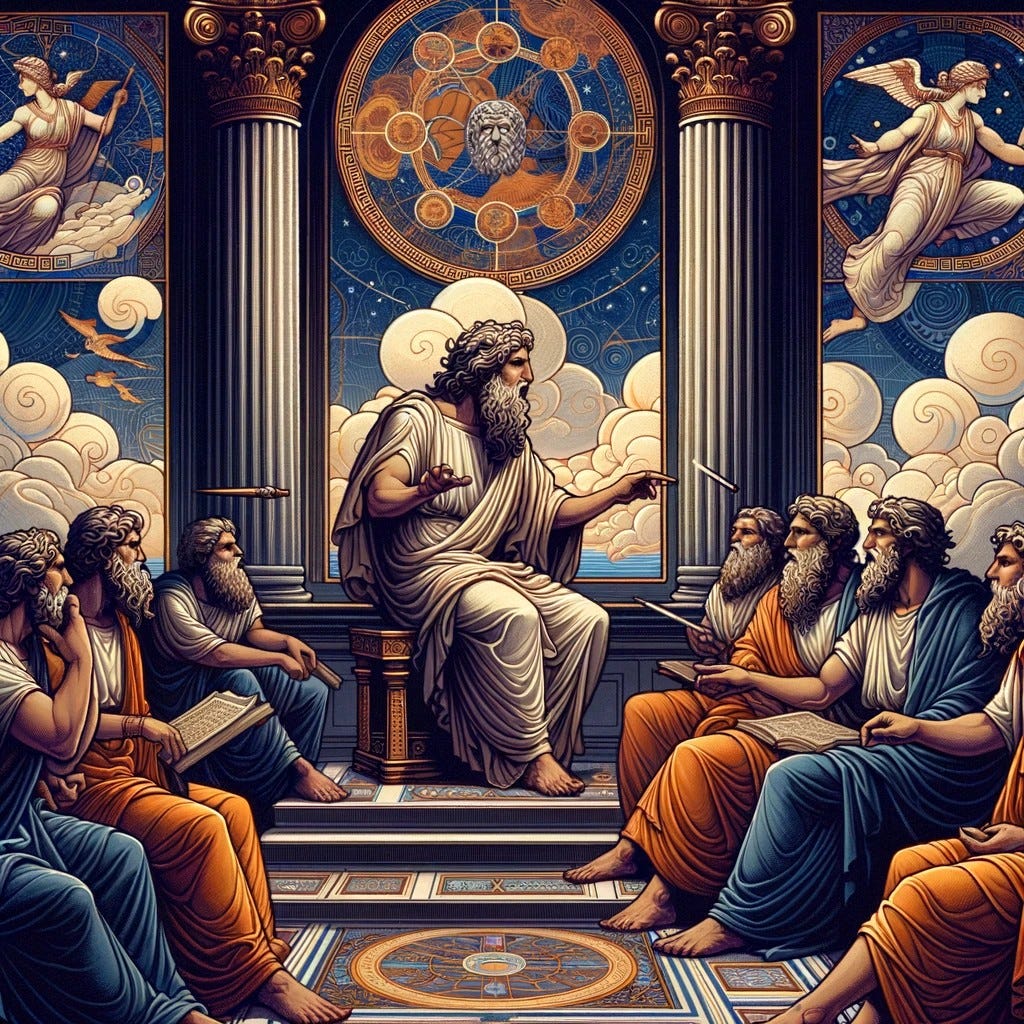
The recipe and the process of making kykeon were closely guarded secrets, passed down through these families. The knowledge was considered sacred and was integral to the mystery rites. The role of these families in preparing kykeon and conducting the Eleusinian Mysteries underscored their importance in ancient Greek religion and society. They were custodians of religious traditions that were central to Greek cultural identity.
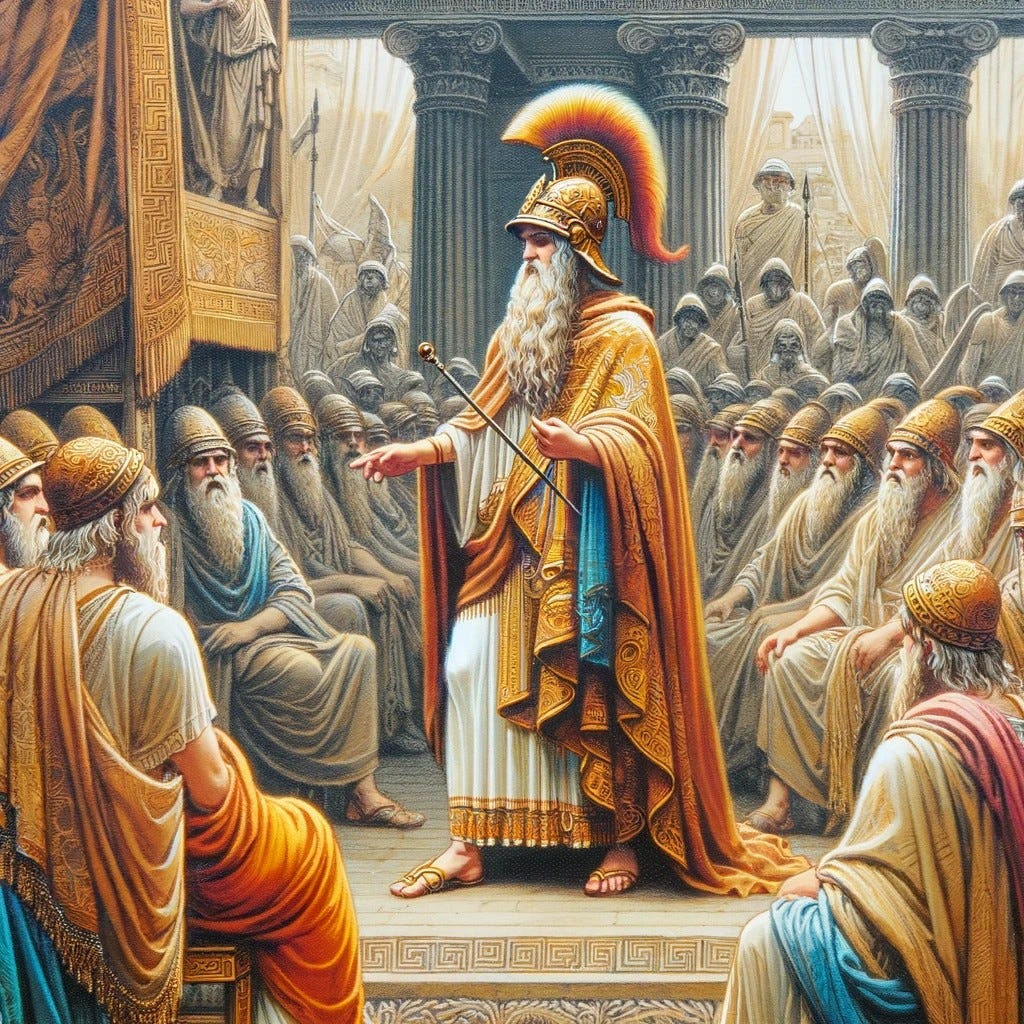
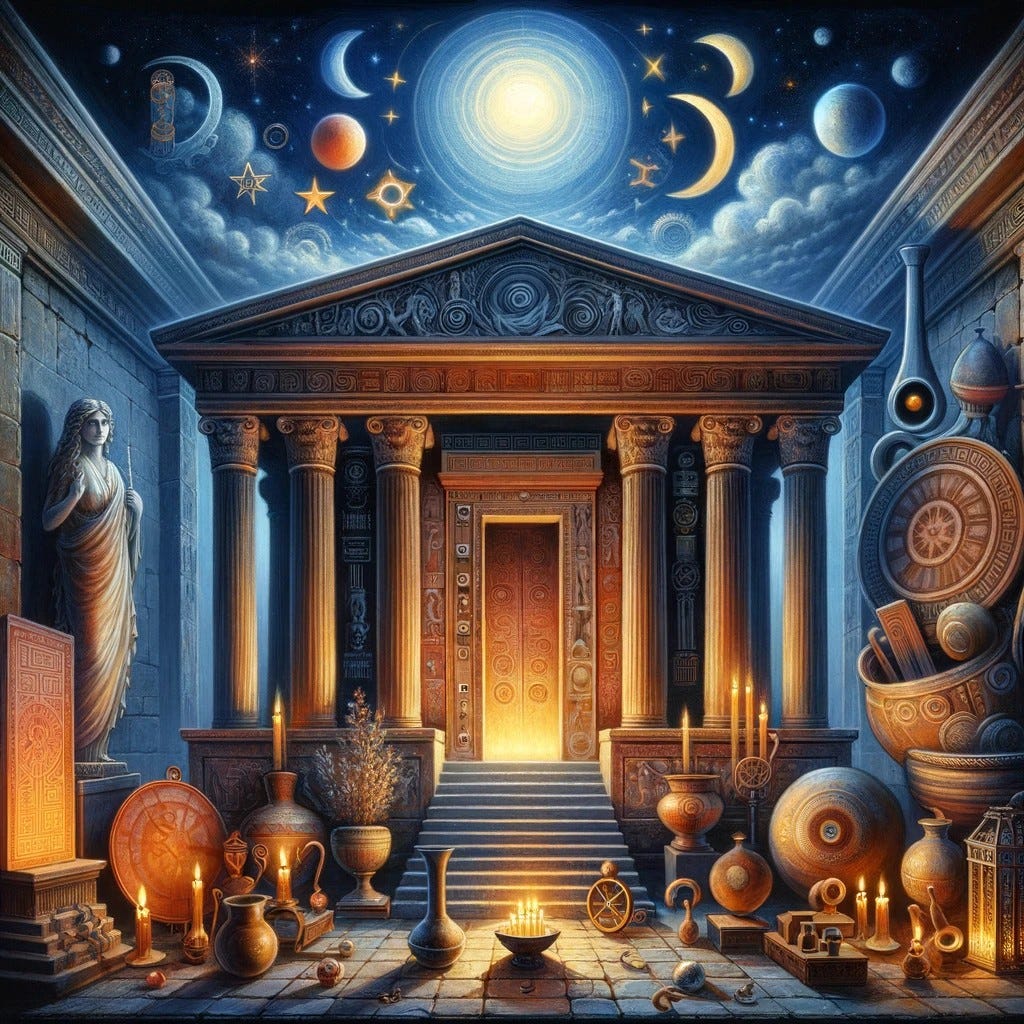
The Eumolpidae and the Kerykes families played a central and hereditary role in the Eleusinian Mysteries, one of the most important religious rituals in ancient Greece. Here's a detailed look into each family:

Eumolpidae
The Eumolpidae claimed descent from Eumolpus, a legendary figure and one of the first priests of Demeter. Eumolpus was often depicted as a key figure in the mythological foundation of the Eleusinian Mysteries. Members of the Eumolpidae family served as hierophants in the Eleusinian Mysteries. The hierophant was a high priest role, responsible for revealing sacred objects and teachings during the rites.
As guardians of the Mysteries, the Eumolpidae were responsible for maintaining the secrecy of the rituals and teachings, which were never revealed to the uninitiated. The Eumolpidae were respected and held high status in Greek society due to their religious role, influencing cultural, religious, and political aspects of Greek life.

Kerykes
The Kerykes claimed descent from Keryx, who, according to mythology, was the son of Eumolpus and a herald appointed by Demeter herself. Members of the Kerykes family served as heralds and priests in the Eleusinian Mysteries. They were responsible for public aspects of the rites, including processions and announcements.
As heralds, the Kerykes played a crucial role in communicating between the gods and the initiates, acting as intermediaries in the sacred rituals. The Kerykes, like the Eumolpidae, held significant religious authority and were influential in broader Greek religious practices.
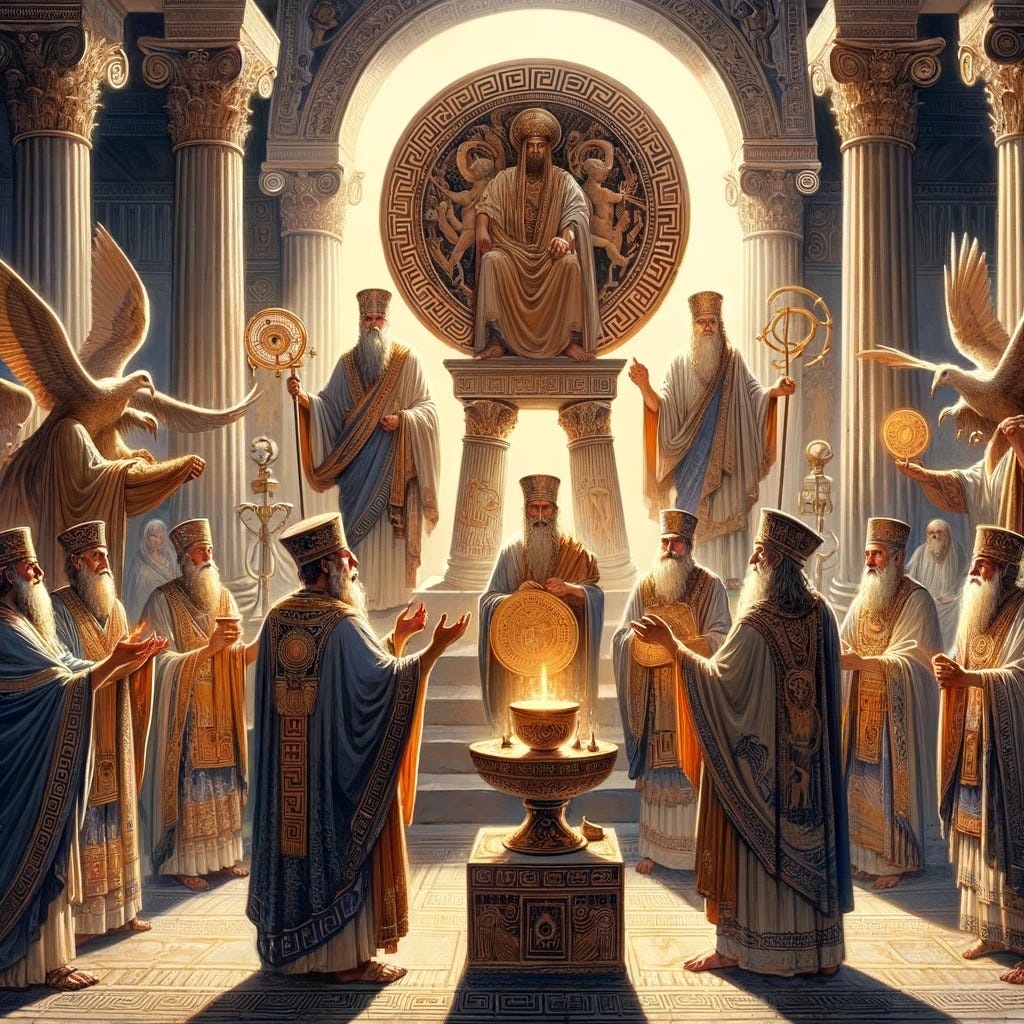
Collaboration and Division of Roles
Both families worked closely together in organizing and conducting the Eleusinian Mysteries. Their roles were complementary, ensuring the smooth functioning of the rites. Both families were deeply involved in the initiation process, guarding the mystical knowledge and ensuring that it was passed down within their lineages.
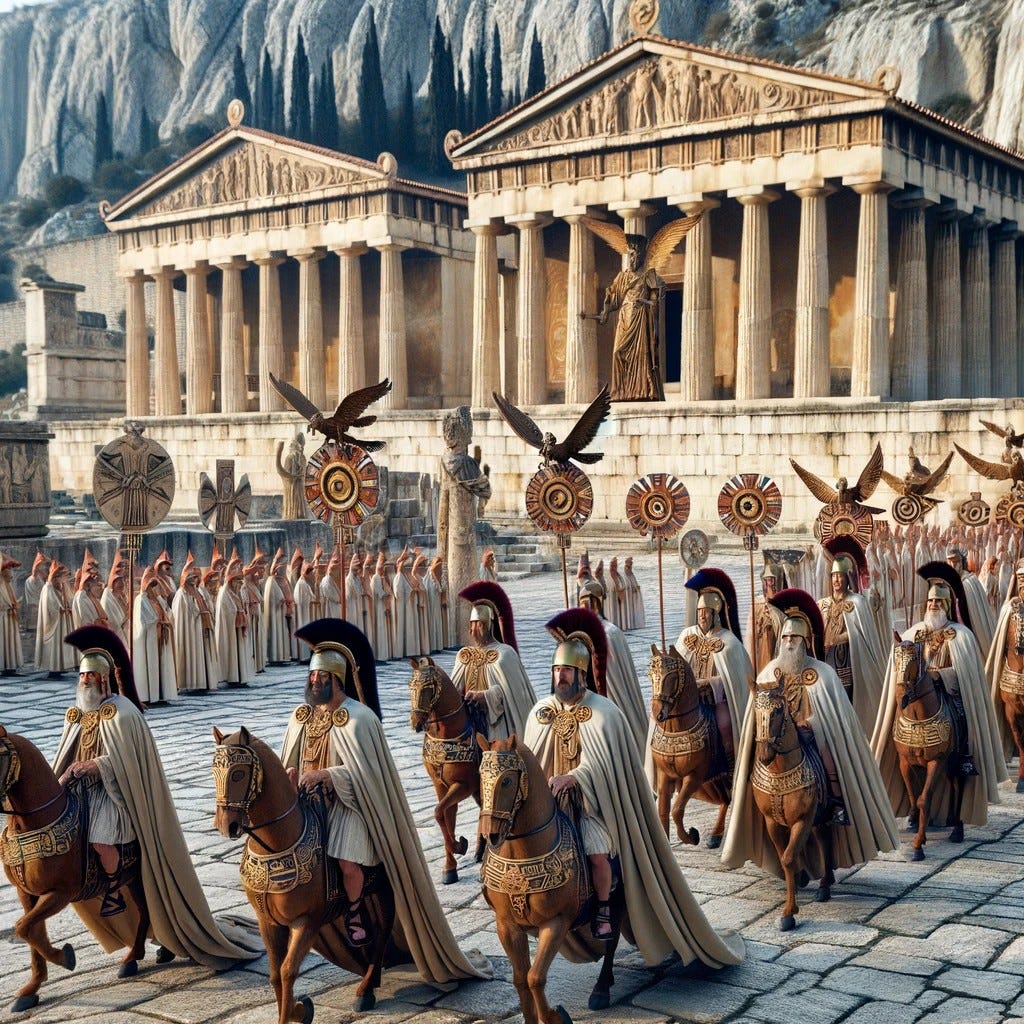
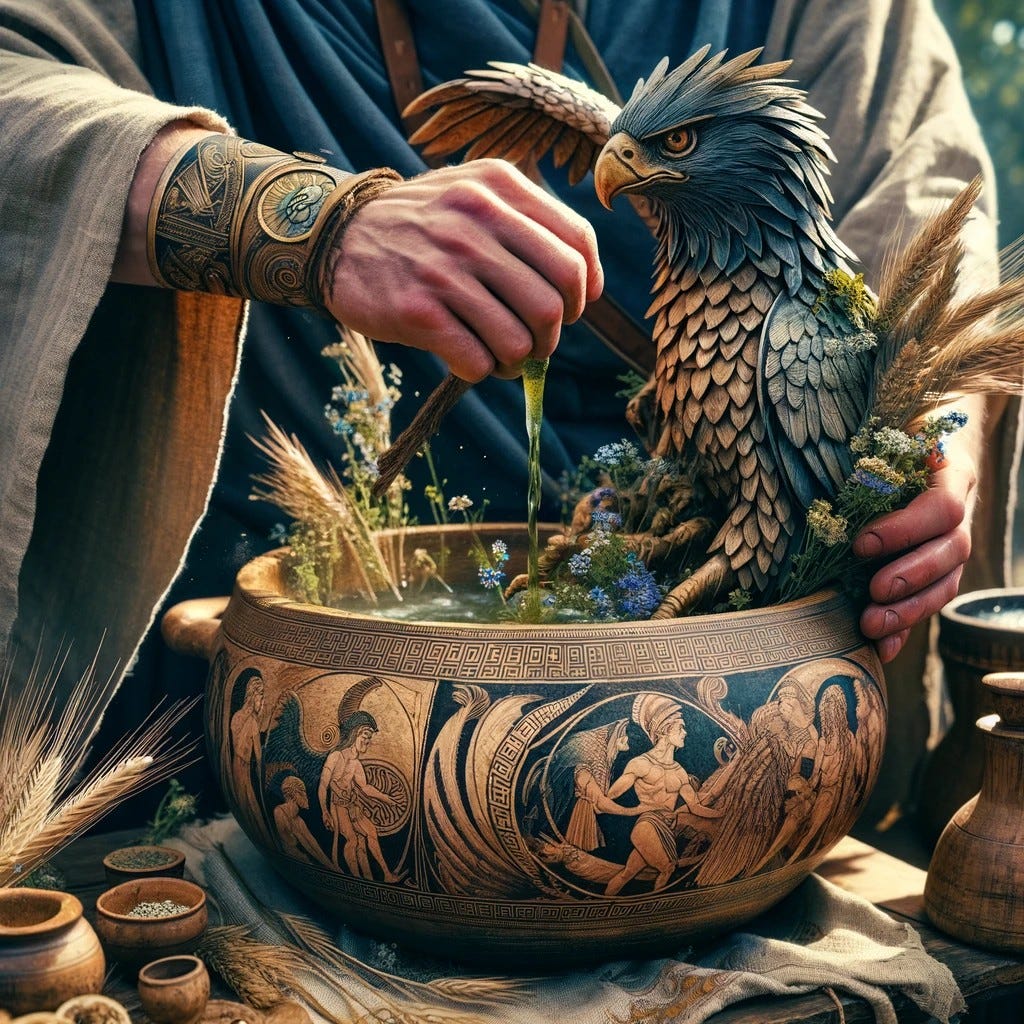
The Eumolpidae and Kerykes families were integral to the Eleusinian Mysteries, each playing specific and hereditary roles. Their influence extended beyond the Mysteries, affecting broader aspects of Greek religious and cultural life. The mysteries of their practices and the exact nature of their roles continue to fascinate historians and scholars.
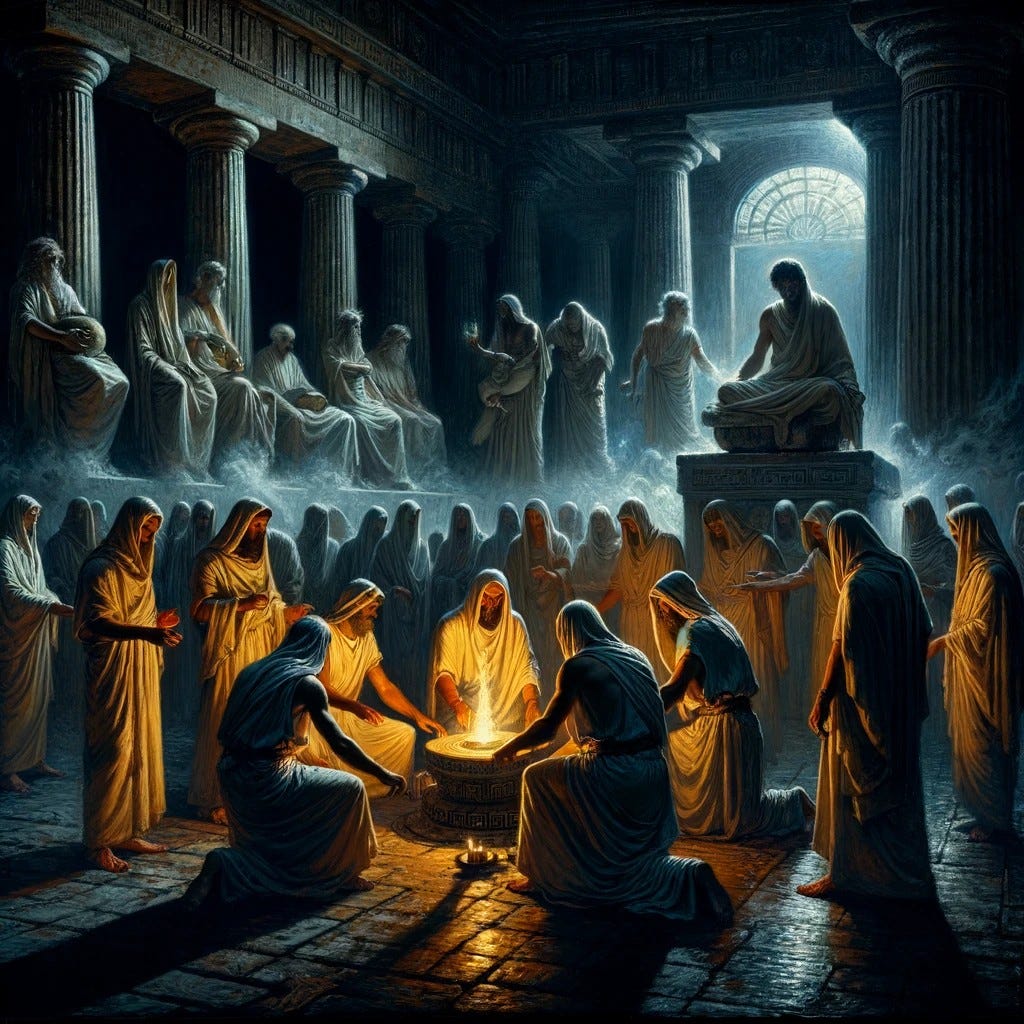
In the end, the Eleusinian Mysteries, Kykeon, and the pivotal roles of the Eumolpidae and Kerykes families serve as enduring symbols of the rich religious and mythological tapestry of ancient Greece. They offer a window into a world where the divine intersected with the human, where secrets of the universe were closely guarded, and where spirituality played an integral role in shaping the cultural identity of one of history's most influential civilizations.


